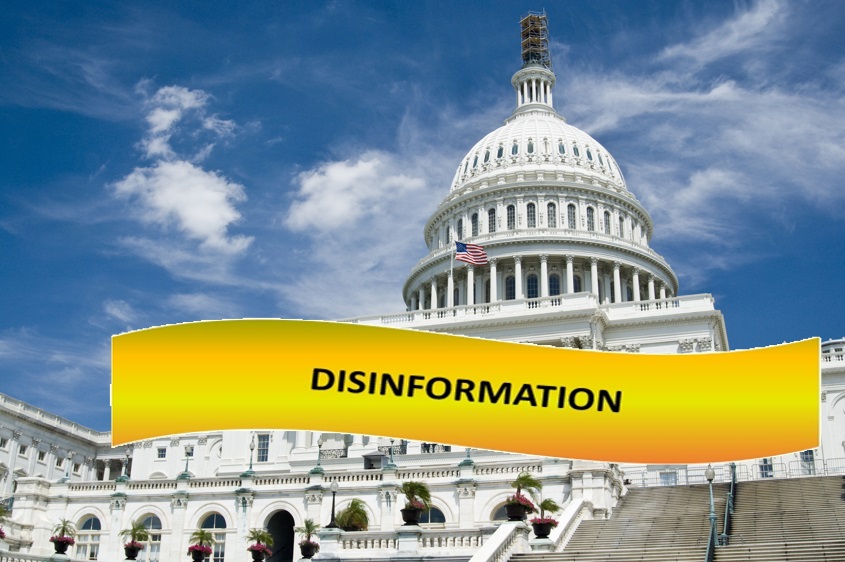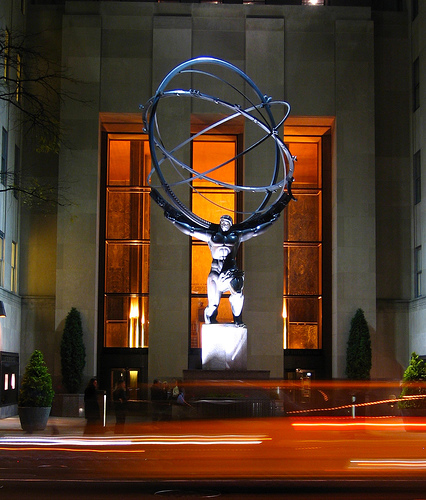Editorial
Government and its proper role
Government has a proper role, as Jefferson mentioned: to manage force to protect life, liberty and property. It does not exist to do things for us.

Recently, on the news/social network site Quora.com, someone asked, “Why do liberals believe the government can solve problems better than [can] private enterprise?” This is a common-enough trap into which liberal voters commonly fall. Falling into that trap bespeaks a lack of imagination, and a lack of any concept of limited government. Herewith a discussion of government, why we have it, and its proper role.
Why we have government
Thomas Jefferson famously observed, “To secure [the inalienable rights of man], governments are instituted among men.” Government then “derive[s its] just powers from the consent of the governed.” What “just powers” does government have, and why must those powers derive by consent? To answer, one must understand how government serves free people.
Government exists to manage force. Recall: earlier, Jefferson tells us what rights people have. He expressed them as “life, liberty and the pursuit of happiness.” For “pursuit of happiness” read property. Which means: something one owns.
Without government, people commonly turn on one another, seeking a survival advantage. Paul of Tarsus observed that not one person has a righteous thought by himself. Thus one must defend his life, liberty and property by force. Thomas Hobbes (Leviathan) describes the quality of life under anarchy: “solitary, poor, nasty, brutish, and short.” Mary Beard (SPQR: A History of Ancient Rome) would likely agree. She observes, from archaeology, that private warlords routinely raided one another’s cattle until at last a true government emerged. This emergence “brought private violence under control.”
Mission creep
Sadly, this government proved all too susceptible to “mission creep.” It rapidly took over the first industry that always falls under government control: transportation. But even then, the Roman government, famous for its roads, managed them (at least at first) as public-private partnerships. It did this by holding elections for curatorships of major roads. The winning curator then kept up his road at his own expense. This formed the earliest social contract. Rome’s census gave votes to each citizen in proportion to their wealth. But the wealthy repaid the commonwealth by managing public works without a public budget. The notion of public budgets and public funding for roads would come centuries, even millennia, later.
The essential mission of government and how it serves that mission
To repeat, government has one purpose: to manage force. By so managing force, it prevents long-standing blood feuds. It also ensures that the law, and not the most powerful members of society, rule. Thomas Paine expressed it best: “The Law is King.”
Government has three institutions that work together to manage force:
- Police, to defend against criminals.
- The military, to defend against invasion from without or depredation abroad. This holds especially on the “high seas,” which are anarchical by definition.
- Courts, which hear complaints and deal peaceable justice.
Those are the only proper institutions of government.
What government should not do
Government does not exist to guarantee anyone a minimum sustenance. Nor does it exist to provide any service requiring any amount of resources. Apologists for government mission creep pretend that only the government “can” command the resources necessary for certain projects. That notion is without foundation. Those apologists really mean that they don’t trust anyone except the government with the resources to build big projects.
Transportation is in fact the first domino to fall in the march toward communism. It began in the ancient world when the great multi-city empires built roads to connect their cities. Except for a short-lived private turnpike movement in America, no one imagines, or has ever imagined, private roads. (And of course, the total seizure of transportation leads to national-flag railways, bus lines, and airlines.)
How private roads would work
So: do we indeed “leave the building of roads to Bill Gates,” to name one example? Lay aside for the moment that the person (who shall remain nameless here) who scornfully asked that question, forgot that Bill Gates is on his side of the political divide. Let’s look instead at how an all-private road network would look and work.
Your editor first treated the problem on these pages, six and three-quarters years ago. Briefly, three kinds of roads would exist, needing three kinds of ownership.
Neighborhood streets would come under the ownership and control of associations of homeowners fronting the streets. Similarly, apartment developers build driveways that sometimes have Post Office addressable street names. The association’s mandate would be to ensure connection to a thoroughfare and to each home in the neighborhood.
The thoroughfare would constitute the second type. Businesses—or other neighborhood associations—fronting or connecting to it would co-operate in keeping it up. Their goal would be to ensure access by employees and customers—but not too much traffic.
Highways connecting cities and towns would have turnpike companies and other such entities to build them. Networking, standard connectivity, and standard rules would occur as naturally as they did with the building of the first railroads.
Make way for the police
But, one might ask, how do the police pass? The police in this model do not directly enforce traffic rules. The private owner-operators see to that. But passage for the police is part of “consent of the governed.” Same for the military—or the militia. The militia isthe body of armed citizens providing the last line of defense against invasion. It is not an arm of the government but instead an adjunct to it.
How well does the government handle road building and upkeep today?
Make that, how ill does it handle these things. Barack Obama had great fun at the expense of private enterprise when he said, “You didn’t build that!” He meant the road or bridge that brings customers in and out of a business. But he left out one inconvenient fact. Today the government does not allow anyone to build, own, and manage roads, except itself. So how can anyone criticize private enterprise for failing to address a problem, when the government will not allow private enterprise to so address it?
Our “failing infrastructure” is a national scandal. Evidently the American Recovery and Reinvestment Act of 2009 failed in its mission. Else, why are we still talking about it, eight years after the first ARRA signs sprang up, with the figure of a smiling worker carrying a shovel?
The compelling Workers’ Great Project posters of the old Soviet Union spring to mind. So does the Soviet experiment in supersonic transport, the Tupolev Model 144. This knockoff of the Concorde ran loud, screaming, and dirty. It could only have run in a command economy like the Soviet Union. If this is an example of a government solving a problem “better than could private enterprise,” your editor shudders to consider what the smug apologists for socialism would consider a failure!
Private enterprise makes a comeback in an unlikely space (pardon the pun)
Last weekend, Elon Musk’s Space
Exploration Company (SpaceX) tested an all-private space transport
system for the first time. The Crew
Dragon, by all accounts, has performed flawlessly thus far. One
last test remains: to bring it down to earth. The next time it flies,
a human crew will fly it.
SpaceX developed an entire space program from the ground up. And it did so under budget. In sharp contrast, consider NASA’s experience as its own prime contractor for Project Apollo. Yes, Americans did get to the Moon. But three astronauts lost their lives in the process. Three more nearly did when an on-board fuel cell blew up in flight! (Casualties of SpaceX thus far: zero.) And then the government cut Project Apollo short. Reason: cost overruns.
So Elon Musk just set an example of private enterprise solving problems better than could the government.
To sum up
To repeat again: government exists to manage force, and protect life, liberty and property. It does not exist to build “wonders of the world.” Those who insist upon that mission, lack imagination. Recent events have vindicated the imagination of those who offer private solutions to “public” problems. Julius Caesar, who early in his career ran Rome’s Building, Weights-and-measures, and Public Games Department (as curule aedile, from the Latin aedes meaning “building”), would certainly approve.
Terry A. Hurlbut has been a student of politics, philosophy, and science for more than 35 years. He is a graduate of Yale College and has served as a physician-level laboratory administrator in a 250-bed community hospital. He also is a serious student of the Bible, is conversant in its two primary original languages, and has followed the creation-science movement closely since 1993.
-
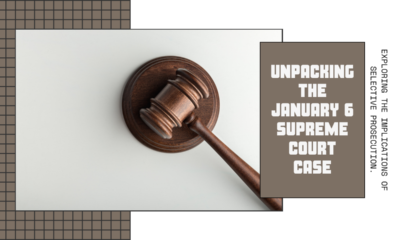
 Executive3 days ago
Executive3 days agoJanuary 6 case comes down to selective prosecution
-
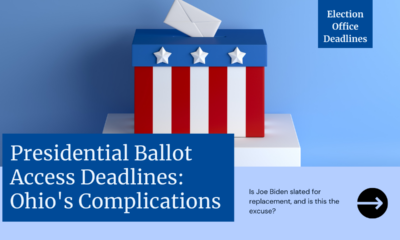
 Executive2 days ago
Executive2 days agoBiden ballot woes continue
-

 News3 days ago
News3 days agoRolling the Dice on Republicans: Has the Right Become Delusional?
-

 Executive2 days ago
Executive2 days agoWhy Fatal Police Shootings Aren’t Declining: Some Uncomfortable Facts
-
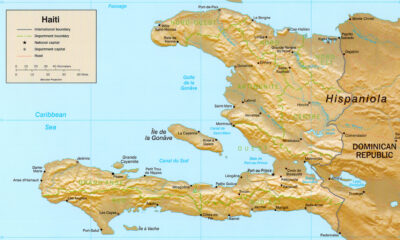
 Civilization2 days ago
Civilization2 days agoPresident Biden Must Not Encourage Illegal Mass Migration From Haiti
-

 Constitution2 days ago
Constitution2 days agoEquality Under the Law and Conflicts of Interest in New York
-
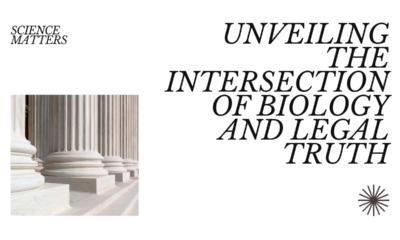
 Civilization3 days ago
Civilization3 days agoBiology, the Supreme Court, and truth
-

 Executive1 day ago
Executive1 day agoDon’t





